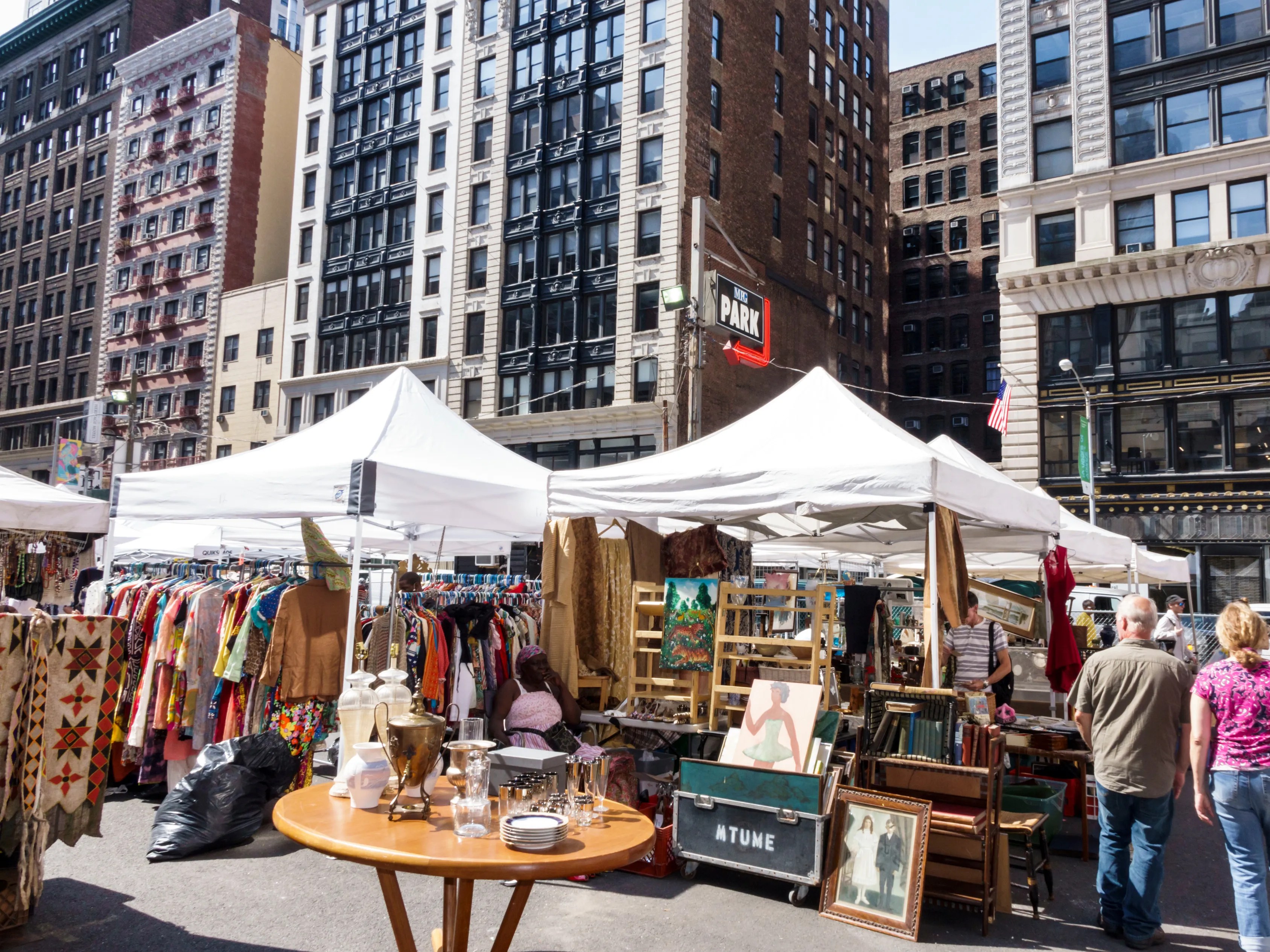Unearth NYC Treasures: Your Guide to Flea Market Adventures

Imagine stumbling upon a hidden gem, a vintage treasure you've been searching for, or a unique piece of art that speaks to your soul. New York City flea markets offer this and more, transforming ordinary weekends into exciting urban adventures. These bustling marketplaces are a microcosm of the city itself, brimming with diverse goods, delicious food, and a vibrant atmosphere that captures the spirit of New York.
From seasoned bargain hunters to curious tourists, NYC flea markets attract a diverse crowd eager to explore the eclectic mix of offerings. Whether you're seeking vintage clothing, antique furniture, handcrafted jewelry, or simply a unique experience, these markets provide a treasure trove of possibilities. But with so many flea markets scattered throughout the five boroughs, navigating this vibrant landscape can feel overwhelming. This guide aims to provide a comprehensive overview of New York City's flea market scene, helping you discover the best spots, navigate the crowds, and unearth your own unique treasures.
The history of flea markets in NYC is intertwined with the city's evolving cultural landscape. Originally emerging as informal gatherings where vendors sold secondhand goods, these markets have grown into established institutions, reflecting the city's diverse communities and entrepreneurial spirit. Some markets, like the Annex Markets, have evolved over time, shifting locations and adapting to the city's changing needs. Others, like Artists & Fleas, have emerged to cater to the growing demand for unique, handcrafted items.
Flea markets play a vital role in NYC's economy, providing a platform for small businesses, independent artists, and vintage vendors to connect with customers directly. They offer an alternative to traditional retail, fostering a sense of community and supporting local entrepreneurship. These markets also contribute to the city's vibrant cultural tapestry, showcasing the creativity and diversity of its residents.
However, flea markets in NYC also face challenges. Space limitations, permitting regulations, and competition from online marketplaces can create hurdles for vendors. Moreover, ensuring the authenticity of vintage and antique items remains an ongoing concern. Despite these challenges, the popularity of flea markets in NYC continues to grow, testament to their enduring appeal and the unique experience they offer.
One of the benefits of exploring NYC flea markets is the opportunity to discover one-of-a-kind items. From vintage clothing and antique furniture to handcrafted jewelry and original artwork, you're likely to find something unique that you won't find anywhere else. For example, the Brooklyn Flea is known for its curated selection of vintage and antique goods, while Artists & Fleas features emerging designers and independent artists.
Another advantage is the chance to support local businesses and artists. By shopping at flea markets, you're directly contributing to the local economy and helping small businesses thrive. This fosters a sense of community and helps preserve the city's unique character.
Finally, flea markets offer a social and cultural experience. They provide a gathering place for people from all walks of life to connect, share stories, and discover new treasures. The vibrant atmosphere, live music, and diverse food vendors create a festive environment that's truly unique to New York City.
Advantages and Disadvantages of NYC Flea Markets
| Advantages | Disadvantages |
|---|---|
| Unique finds | Can be crowded |
| Supports local businesses | Weather dependent (for outdoor markets) |
| Social and cultural experience | Limited accessibility for some |
Navigating the bustling world of NYC flea markets can be overwhelming, but with a little planning, you can maximize your experience. Start by researching different markets and identifying those that align with your interests. Check their websites or social media pages for hours of operation, vendor lists, and special events. Arrive early to beat the crowds and snag the best deals. Don't be afraid to haggle respectfully with vendors, and always inspect items carefully before purchasing.
Some popular NYC Flea Markets include the Chelsea Flea Market, Grand Bazaar NYC, and the Hell's Kitchen Flea Market. Each market offers a distinct atmosphere and selection of goods, catering to diverse tastes and budgets.
Frequently asked questions include: Are NYC flea markets open year-round? Many operate seasonally, primarily during warmer months. What forms of payment are accepted? While some vendors may accept credit cards, cash is generally preferred. Are pets allowed? Policies vary by market, so it's best to check beforehand.
In conclusion, New York City flea markets offer a unique and rewarding experience for both residents and visitors. These vibrant marketplaces provide a treasure trove of unique finds, support local businesses, and foster a sense of community. From vintage clothing and antique furniture to handcrafted jewelry and original art, there's something for everyone to discover. By embracing the tips and strategies outlined in this guide, you can navigate the bustling world of NYC flea markets with confidence and unearth your own unique treasures. So, step into this vibrant world, embrace the thrill of the hunt, and discover the magic that awaits within the heart of New York City's flea market scene.
Maximize your bowling game find the perfect ball cleaner
Exploring the weeknds let me go meaning and impact
Transform your screen the allure of pastel landscape wallpapers


/cdn.vox-cdn.com/uploads/chorus_image/image/49876783/the-august-tree-blankets.0.png)










